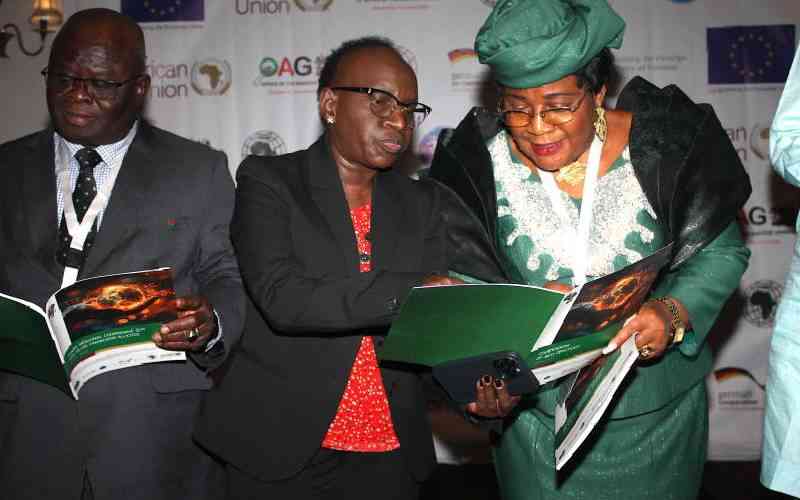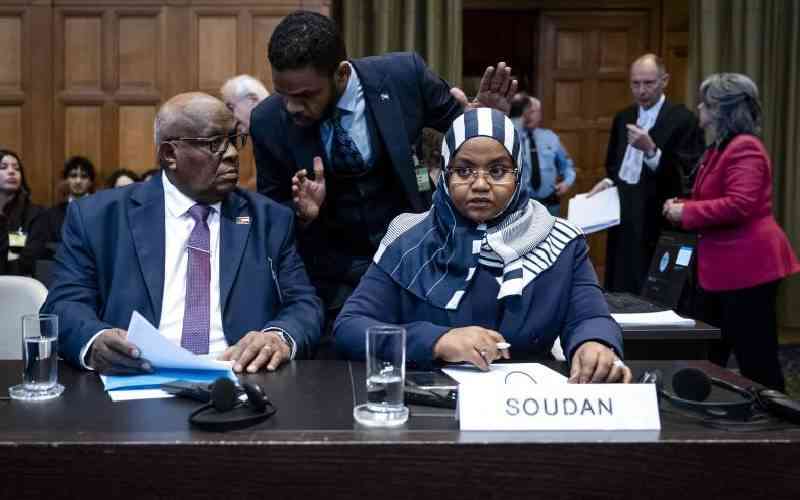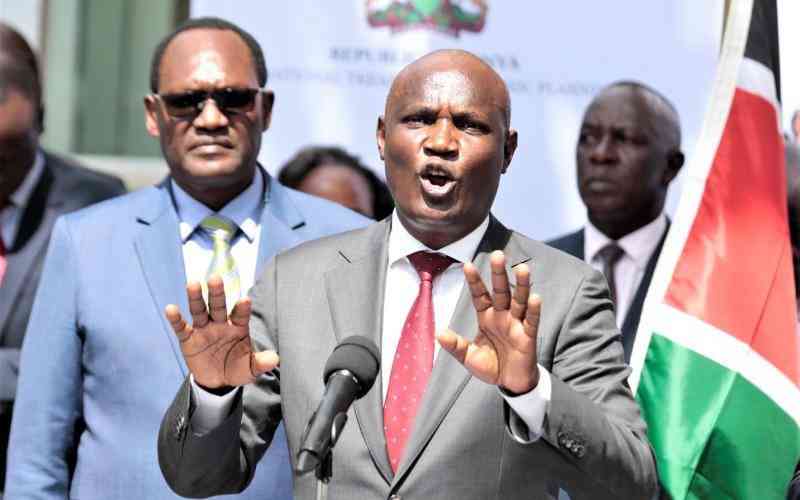NAIROBI: The prospect of the taxman visiting any institution almost always draws some sense of trepidation — a fear they might find something that lands you with arrears and penalties. That is why when the Kenya Revenue Authority (KRA) requested to pay a commendation courtesy call at the Christ is the Answer Ministries (CITAM) offices, it was a pleasant surprise.
The KRA Commissioner for Domestic Taxes, Ms Alice Owuor, together with her team visited the church last week to thank CITAM for their tax compliance and growth. In her speech, she more specifically appreciated the church’s embracing of technology and its timely remittances. CITAM was one of several medium tax payers selected for such visits, and one of only five personally visited by the Commissioner. It was the only religious organisation nominated for the courtesy visit.
Though a simple gesture, this was truly a great honour, not just to CITAM, but to the many other Christian and religious organisations that are equally faithful in supporting the government in this way.
Taxation is a practice duly recognised by God and well recorded in the Holy Scriptures as a means for supporting government activities. Joseph established a special tax in Egypt to store grain in preparation for a predicted famine. When confronted by some of His followers on whether or not to pay taxes, Jesus made the now famous statement, “Give to Caesar what is Caesar’s, and to God what is God’s.”
On another occasion, when the tax collectors came to Him for taxes, Jesus made arrangements and paid not only for himself but also for His disciples. Paul, writing to believers on the same, advised all to pay taxes, “for the authorities are God’s servants, who give their full time to governing.” He further ordered that we should give everyone what we owe them: If you owe taxes, pay taxes; if revenue, then revenue; if respect, then respect; if honour, then honour. Thus, tax remittance is not just our patriotic duty but also a divine mandate.
Yet, as churches and other charitable groups take their place in supporting revenue collection, there may be need to also better support them in their contribution towards a more peaceful and harmonious society. They should also be recognised for providing various kinds of social support to the needy. Thus appropriate legislation should be put in place that allows for tax deductible contributions for credible churches and charitable organisations as happens in other nations. This would greatly ease the government burden of providing social amenities such as universities, schools, hospitals, rehabilitation homes, and such other facilities currently a drain on limited government resources.
On the other hand, the government should be commended for various efforts towards a more harmonised tax regime. KRA has equally worked hard at developing easier tax remittance systems. We equally commend them for going out of their way to encourage compliance.
For sure, when taxation is more harmonised and tax remittance made easier, there is every likelihood of better compliance by faithful Kenyans who would want to support national development. However, even as efforts are made towards better collection of taxes, our hope and desire is for a visible commitment to more prudent use of resources.
Otherwise, it is discouraging for faithful Kenyans to sacrifice a significant portion of their earnings to finance government, only for such resources to be squandered in opulence and wanton greed. I doubt that the tax collector is happy either when they see their efforts simply wasted away.
We also need to see tangible efforts at tackling corruption that continues to eat away at our contributions. In a report widely publicised by the BBC and other media a few years ago, the Kenya government admitted to losing nearly one-third of the national budget to corruption. This is a staggering figure. It means our tax burden could be less by about one third if corruption was decisively dealt with. Instead of paying 30 per cent income and corporate tax, we should be paying 20 per cent or thereabout! Instead of 16 per cent VAT we should be paying about 11 per cent.
Imagine what this could do towards spurring economic growth. Yet it is unfortunate that in spite of several efforts by the President to tackle corruption, there seems to be a concerted resolve in certain quarters to sabotage such endeavours. Unless of course the President’s actions have been mere public relation stunts — which I personally doubt. But he must now change tack and pull us out of the doldrums.
 The Standard Group Plc is a
multi-media organization with investments in media platforms spanning newspaper
print operations, television, radio broadcasting, digital and online services. The
Standard Group is recognized as a leading multi-media house in Kenya with a key
influence in matters of national and international interest.
The Standard Group Plc is a
multi-media organization with investments in media platforms spanning newspaper
print operations, television, radio broadcasting, digital and online services. The
Standard Group is recognized as a leading multi-media house in Kenya with a key
influence in matters of national and international interest.
 The Standard Group Plc is a
multi-media organization with investments in media platforms spanning newspaper
print operations, television, radio broadcasting, digital and online services. The
Standard Group is recognized as a leading multi-media house in Kenya with a key
influence in matters of national and international interest.
The Standard Group Plc is a
multi-media organization with investments in media platforms spanning newspaper
print operations, television, radio broadcasting, digital and online services. The
Standard Group is recognized as a leading multi-media house in Kenya with a key
influence in matters of national and international interest.





